Altcoin
Lawyers Weigh In On SEC’s XRP Appeal, Settlement, Final Judgment Date
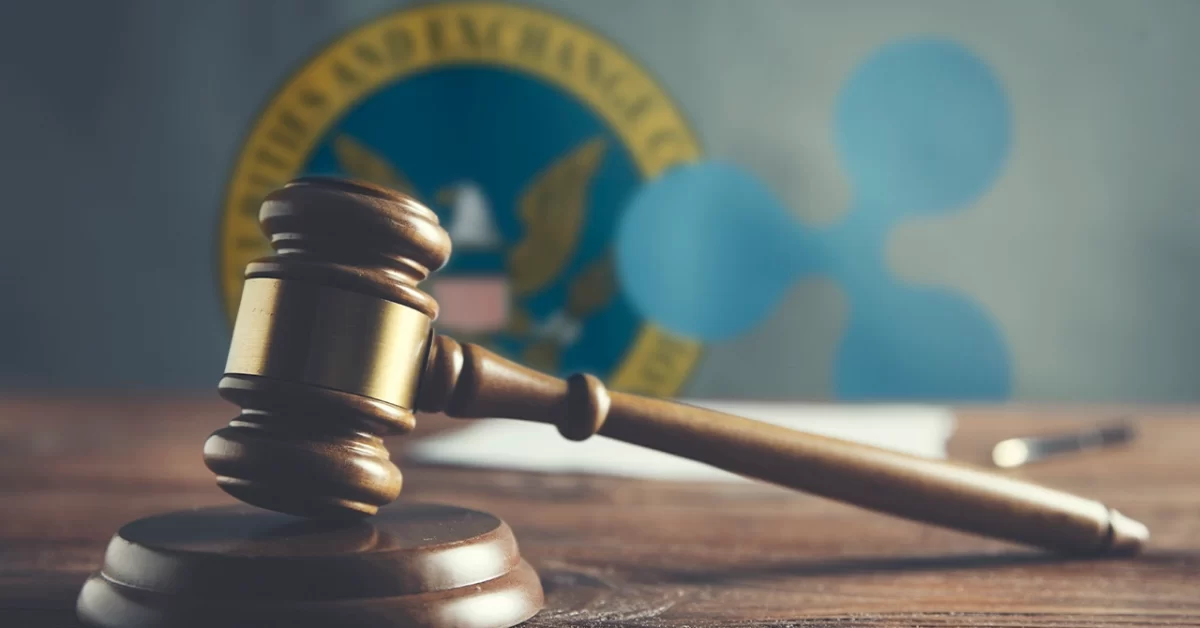
Ripple vs SEC Lawsuit News: Unless there’s an expected twist from the US Securities and Exchange Commission (SEC), lawyers say the long-awaited final judgment in SEC v. Ripple Labs could come in July. They also believe the SEC will probably appeal the summary judgment as Judge Torres ruled that XRP programmatic sales are not security contracts.
Lawyers Clears Air On If SEC Can Appeal Entire Ruling
Pro-XRP lawyer Fred Rispoli predicts a ruling by Judge Torres on remedies by the end of July or early August. “Although Judge Torres could get poetic and issue it on July 13,” he added. The SEC argues $2 billion in total fines including penalties, while Ripple believes the penalty amount should not exceed $10 million.
Rispoli added that the case can always be settled beforehand, but the odds are currently at zero percent. SEC and Ripple can also settle arguments not addressed by judges in the ruling. However, the SEC can still move to appeal against programmatic sales of XRP.
This is splitting hairs from Marc’s answer, but the SEC cannot appeal anything to do with its claims against Brad and Chris relating to Institutional Sales, which the SEC agreed to dismiss with prejudice. The SEC could still appeal its claims against both for Programmatic Sales.
— Fred Rispoli (@freddyriz) June 13, 2024
Marc Fagel, a former SEC securities lawyer, also reaffirmed that the SEC will likely appeal the summary judgment ruling on liability as they didn’t agree with Judge Torres on XRP’s classification as not a security under the Howey test. In addition, he added that the agency can appeal the remedies order, “but that’s a real long shot.”
Also Read: XRP Whale Dumps 52M Coins Amid Price Upswing, What’s Next?
Judge Netburn May Not Rule on Expert Witness
Both parties have strong arguments on the expert witness motion in the XRP lawsuit. Lawyers including Bill Morgan and Jeremy Hogan think Ripple Labs will lose the motion to strike the declaration of expert witness Andrea Fox in the remedies dispute.
Commenting on whether Judge Netburn to rule on expert witness, Fred Rispoli said “Netburn and Torres can confer and determine that the issue before Netburn (the SEC’s “extra expert”) does not need to be ruled upon.” Judge Torres can bypass expert witness to announce a final judgment on remedies and injunction. But he claims this will only happen in case the ruling is in favor of Ripple.
Also Read: Ripple Vs SEC: Lawyer Says XRP Lawsuit Going To Appeals Court, What’s Next?
How $4.47B Settlement In Terraform vs SEC Impact XRP Lawsuit?
Terraform Labs and Do Kwon’s settlement with the U.S. SEC was not welcomed by the crypto community as the SEC has been unfair in enforcement lawsuits, including Ripple and DebtBox cases.
Coinbase CLO Paul Grewal and Ripple CLO Stuart Alderoty also expressed dissatisfaction with the SEC luring a hefty fine from Terraform Labs. The Terra Luna crisis caused investors to lose $40 billion in wealth and led to the collapse of many crypto firms in what was seen as a domino effect. They said the settlement made the SEC an unsecured creditor in the bankruptcy and no meaningful relief to fraud victims.
Formed SEC lawyer James Farell claimed that the injunction in the Terra fraud lawsuit weakens “lots of Ripple’s arguments regarding proprietary and proportionality.” Ripple claimed that a penalty over $10 million would be excessive when compared to prior crypto cases.
Also Read: Terraform Labs Has Just $75 Million In Assets, How Will It Pay the SEC $4.75 Billion?
The presented content may include the personal opinion of the author and is subject to market condition. Do your market research before investing in cryptocurrencies. The author or the publication does not hold any responsibility for your personal financial loss.
Altcoin
OM Price Reacts as MANTRA Announces Major 300M Token Burn Update

OM price has reacted negatively to MANTRA’s new token burn announcement. The team announced a token burn plan that will remove 150 million OM tokens from circulation forever. As per the details, they will plan an additional 150 million token burn which can bring the burn amount to 300 million tokens.
OM Price Slumps After Token Burn Announcement
According to the company’s announcement, CEO and Founder John Patrick Mullin will burn his entire 150 million allocation of team tokens. This was a promise he made to the community last week.
Despite the substantial supply reduction plan, the OM token price has reacted negatively to the news. Data shows that the OM price is down approximately 5% in the last 24 hours and trades at $0.5437. This decline adds to a much steeper drop of 91% over the past 30 days. Amidst this drop, CoinGape analysis talks about the possibility of OM rebounding 50% from its lows.
The token burn process has already started with the unstaking of 150 million OM from the Team and Core Contributor allocation. This was initially staked at mainnet genesis in October 2024 to support network security. The company has provided transaction hashes for verification, and the unstaking period will complete on April 29, 2025. Following this, the OM will be sent to a burn address and permanently removed.
MANTRA has started a transparent process for the token burn and has provided specific technical details to allow community verification of each step. The unstaking of 150 million tokens from the Team and Core Contributor allocation has begun and can be tracked through three transaction hashes provided in the announcement.
The tokens were originally staked at mainnet genesis in October 2024 to bootstrap network security. According to the announced timeline, the unstaking period will conclude on April 29, 2025, after which all 150 million tokens will be sent directly to the designated burn address.
MANTRA Plans An Additional 150 Million Token Burn
MANTRA has also mentioned that once the burn transaction is executed, they will give complete verification to the users. The company is also in discussions with key ecosystem partners to implement an additional 150 million OM token burn. This would double the impact of the initial burn to a total of 300 million OM removed from circulation.
The token burn will have major effects on MANTRA’s tokenomics and staking economics. According to the blog details, the 150 million OM burn will reduce the total supply from 1.82 billion OM to 1.67 billion OM. This is regarding an 8.2% reduction in the overall number of tokens present.
The burn will also impact the staking configuration within the network in a particular manner. Removing these tokens from staked supply will reduce the staked tokens to 421.8 million OM.
This adjustment will decrease the bonded ratio of the network from 31.47% to 25.30%. This decrease in the bonded ratio is especially important to stakers who bond their OM. This is because it will lead to a greater staking APR (Annual Percentage Rate).
Mantra’s crash was one of the most notable ones recently. Crypto exchange Binance also broke silence amid the token’s crash.
Disclaimer: The presented content may include the personal opinion of the author and is subject to market condition. Do your market research before investing in cryptocurrencies. The author or the publication does not hold any responsibility for your personal financial loss.
Altcoin
Expert Reveals Pi Network’s Team Efforts To Stabilize Price Amid Token Unlocks

Crypto expert Dr. Altcoin has revealed the efforts that the Pi network team has made so far to help stabilize the Pi coin price. The expert explained that this is the reason why the altcoin has been able to stay above the $0.63 support level, rather than dropping to new lows following the recent token unlocks.
Expert Reveals How Pi Network Team Has Helped Stabilize Pi Coin Price
In an X post, Dr. Altcoin revealed that the Pi Network team has already implemented a strategy to absorb the extra Pi supply entering Centralized Exchanges (CEXs) to help stabilize the Pi coin price. He remarked that it has worked so far, seeing as the price has stabilized.
The expert made this revelation while explaining why the Pi coin hasn’t dropped to $0.30 or even lower amid the large volume of unlocked Pi. Instead, the coin has held above the $0.60 support.
Dr. Altcoin asserted that this move from the Pi Core Team proves that the project is not just another pump-and-dump project and that the coin is here to stay and lead. The expert admitted that he and the entire Pi community remain disappointed with the current price and the team’s ongoing lack of communication.
However, he hopes that the team resolves this soon. The expert also affirmed that the Pi Network has remained successful, consistently ranking in the top 30 crypto by market cap. He also stated that the recent strategy by the Pi Core Team to manage the influx of Pi is a clear sign of their long-term vision for the project.
It is worth mentioning that the expert also recently mentioned that the Consensus 2025 conference is pivotal for Pi’s ecosystem. He believes this is an avenue for the team to promote the project.
Pi Coin Price To Still Reach $314
In his post, Dr. Altcoin also stated that he believes that the Pi Network’s price can still reach $314 within the next five years. He added that he has never been more confident in the project’s future than he is today.
In line with this, he urged all Pi community members to continue supporting the project and keep buying the altcoin while it is still cheap. Community members look to be actively accumulating at the moment. As CoinGape reported, whales recently moved over 41 million Pi coins off exchanges, providing a bullish outlook for Pi Network’s price.
In the short term, crypto analysts like Moon Jeff predicted that the Pi coin price could reclaim the $1 level and rally to as high as $5 soon. A listing by a top crypto exchange could undoubtedly send the altcoin to new highs. CoinGape recently reported that the HTX exchange has hinted at a potential listing of the altcoin.
Disclaimer: The presented content may include the personal opinion of the author and is subject to market condition. Do your market research before investing in cryptocurrencies. The author or the publication does not hold any responsibility for your personal financial loss.
Altcoin
PancakeSwap Sets Date for CAKE 3.0 Amid Community Concern

PancakeSwap, the largest decentralized exchange (DEX) on BNB Chain, has officially announced the implementation of CAKE Tokenomics 3.0. This marks a major shift toward a more sustainable and deflationary ecosystem.
According to the announcement, PancakeSwap will begin rolling out the new tokenomics model on April 23, 2025. The main goals are to curb CAKE inflation, optimize system efficiency, and deliver long-term value to the community. However, the CAKE 3.0 proposal has sparked considerable debate.
What Are the Key Changes in CAKE Tokenomics 3.0?
PancakeSwap has set three primary goals for Tokenomics 3.0: achieve an annual deflation rate of 4%, eliminate complex mechanisms such as veCAKE, and reduce CAKE emissions to improve sustainability.
Here are the specific changes:
- Retirement of CAKE Staking, veCAKE, Gauges Voting, Revenue Sharing, and Farm Boosting: PancakeSwap will discontinue CAKE staking and the veCAKE mechanism, which required users to lock tokens in exchange for voting rights or benefits. All locked CAKE and veCAKE will be unlocked.
- Burn Mechanism to Reduce Circulating Supply: PancakeSwap will burn tokens to reduce supply instead of sharing trading fees with users. The team expects to burn approximately 5.3 million CAKE annually, supporting the deflation target.
- Phased Reduction in CAKE Emissions: Daily CAKE emissions will be reduced from 29,000 to 20,000, and later to 14,500 tokens.
Users will have six months from April 23, 2025, to withdraw their previously locked CAKE.
The Debate Around CAKE 3.0
Several developers and community members believe CAKE Tokenomics 3.0 will benefit the project in the long term.
“At its core, CAKE Tokenomics 3.0 defends true value and protects CAKE holders by strengthening long-term fundamentals—such as aggressively cutting emissions to accelerate deflation and sustainably grow value,” Chef Philip said.
However, not everyone agrees. Cakepie DAO—one of the largest veCAKE holders—voiced strong concerns on X. They criticized the decision to eliminate veCAKE, calling it non-transparent and potentially damaging to projects built around that model.
This reveals a divide in the community over how PancakeSwap is balancing deflation and stakeholder interests.
“Sunsetting veCAKE would be devastating for Cakepie and for every project built on long-term alignment with PancakeSwap. Our entire ecosystem is structured around veCAKE, with millions of CAKE locked for four years as a clear show of commitment. Removing veCAKE would erase that commitment overnight and undermine the trust and efforts of all builders who believed in PancakeSwap’s vision,” Cakepie stated.
In response, PancakeSwap proposed a $1.5 million compensation package in CAKE tokens. They offered this to CKP (Cakepie’s token) holders if Cakepie agreed to allow a 1:1 swap from mCAKE (Cakepie’s CAKE derivative) to CAKE.
However, Cakepie is currently voting on whether to accept the offer.

At the time of reporting, CAKE is trading around $1.97, up 17% since April 8, when PancakeSwap first proposed Tokenomics 3.0.
Additionally, data from DeFiLlama shows that PancakeSwap’s 24-hour trading volume has surpassed $1 billion, overtaking Uniswap.
Meanwhile, a report from BeInCrypto reveals that PancakeSwap controls over 90% of the DEX market share on BNB Chain. This highlights the strong relationship between BNB Chain and PancakeSwap.
Disclaimer
In adherence to the Trust Project guidelines, BeInCrypto is committed to unbiased, transparent reporting. This news article aims to provide accurate, timely information. However, readers are advised to verify facts independently and consult with a professional before making any decisions based on this content. Please note that our Terms and Conditions, Privacy Policy, and Disclaimers have been updated.
-

 Bitcoin14 hours ago
Bitcoin14 hours agoUS Economic Indicators to Watch & Potential Impact on Bitcoin
-
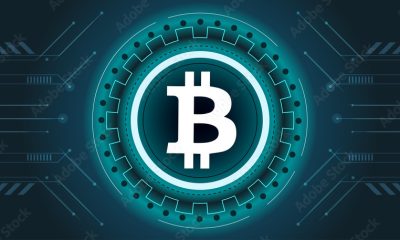
 Bitcoin23 hours ago
Bitcoin23 hours agoBitcoin LTH Selling Pressure Hits Yearly Low — Bull Market Ready For Take Off?
-
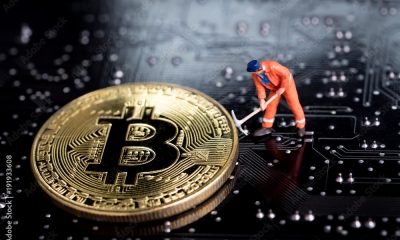
 Bitcoin20 hours ago
Bitcoin20 hours agoHere Are The Bitcoin Levels To Watch For The Short Term
-

 Market17 hours ago
Market17 hours agoBitcoin Price Breakout In Progress—Momentum Builds Above Resistance
-
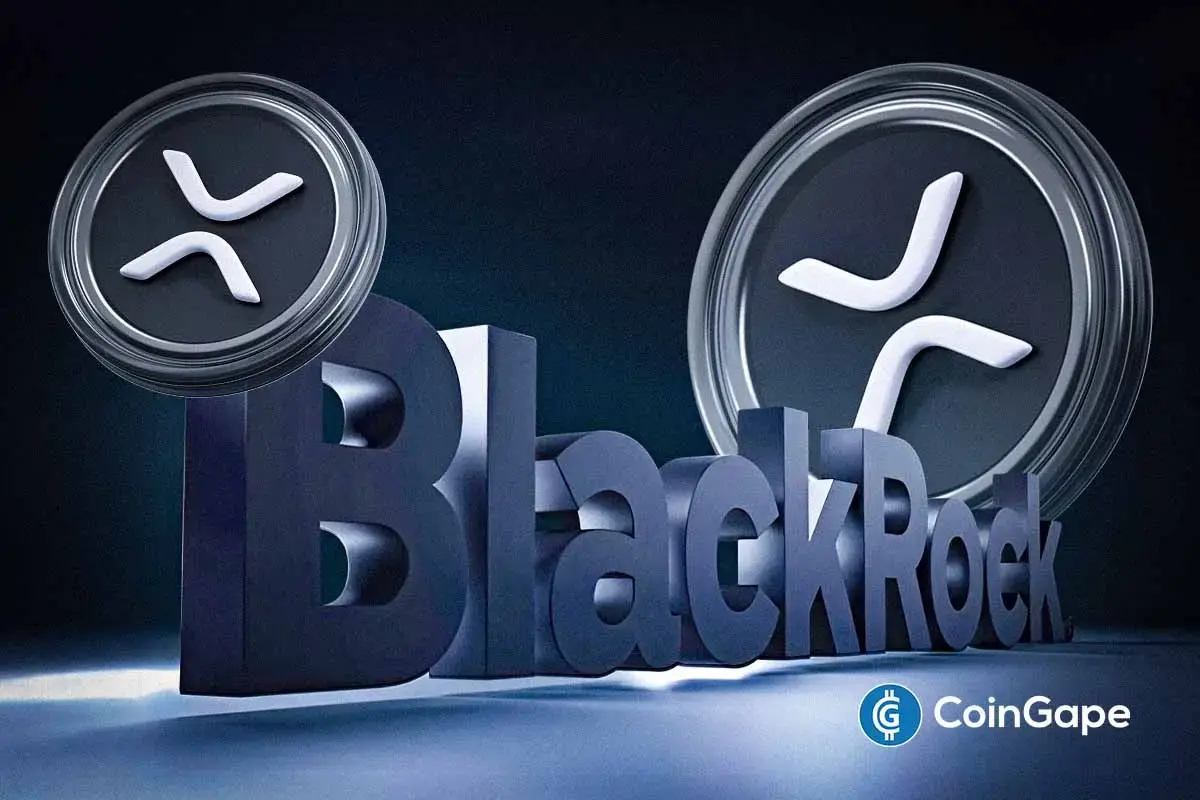
 Altcoin12 hours ago
Altcoin12 hours agoExpert Reveals Why BlackRock Hasn’t Pushed for an XRP ETF
-

 Altcoin17 hours ago
Altcoin17 hours agoExpert Says Solana Price To $2,000 Is Within Reach, Here’s How
-

 Market15 hours ago
Market15 hours agoSolana Rallies Past Bitcoin—Momentum Tilts In Favor of SOL
-

 Market14 hours ago
Market14 hours agoVitalik Buterin Proposes to Replace EVM with RISC-V




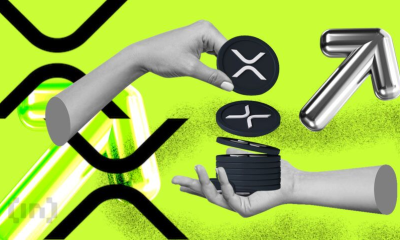
















✓ Share: